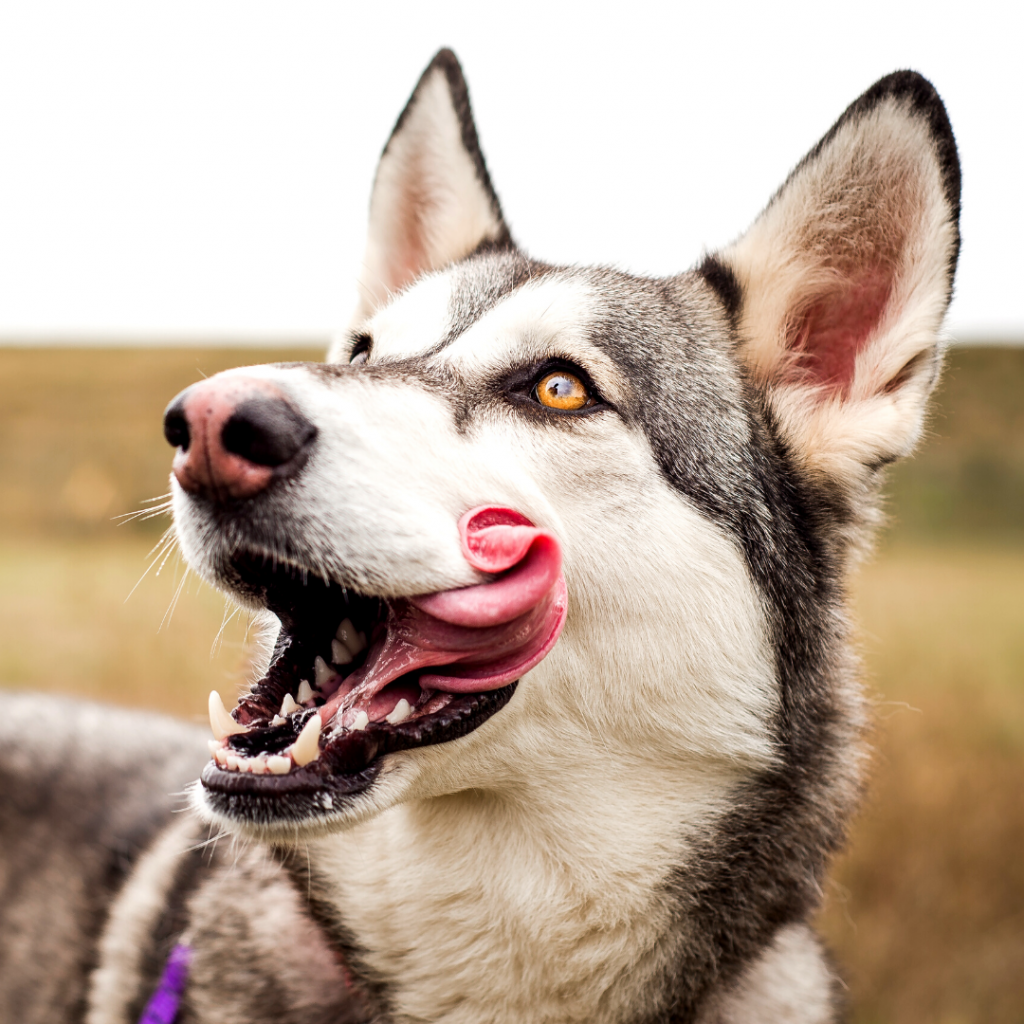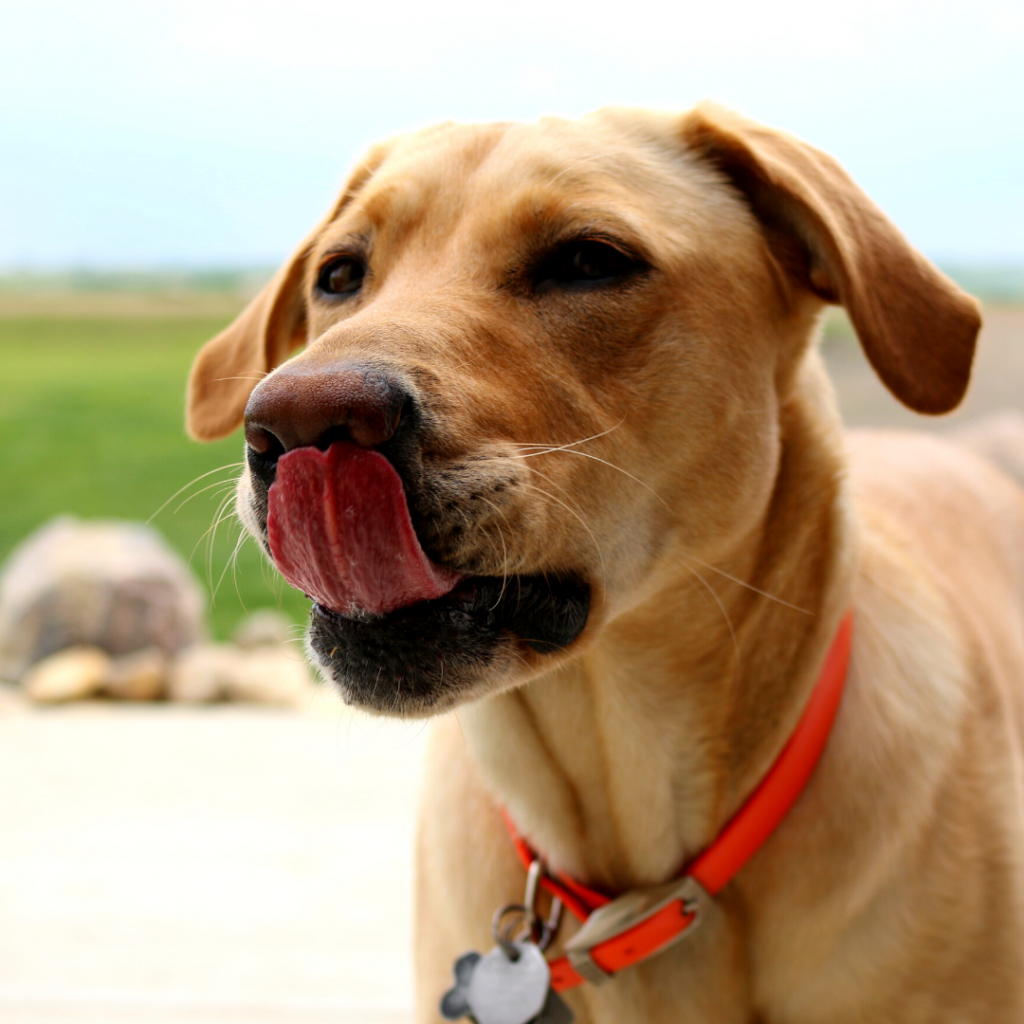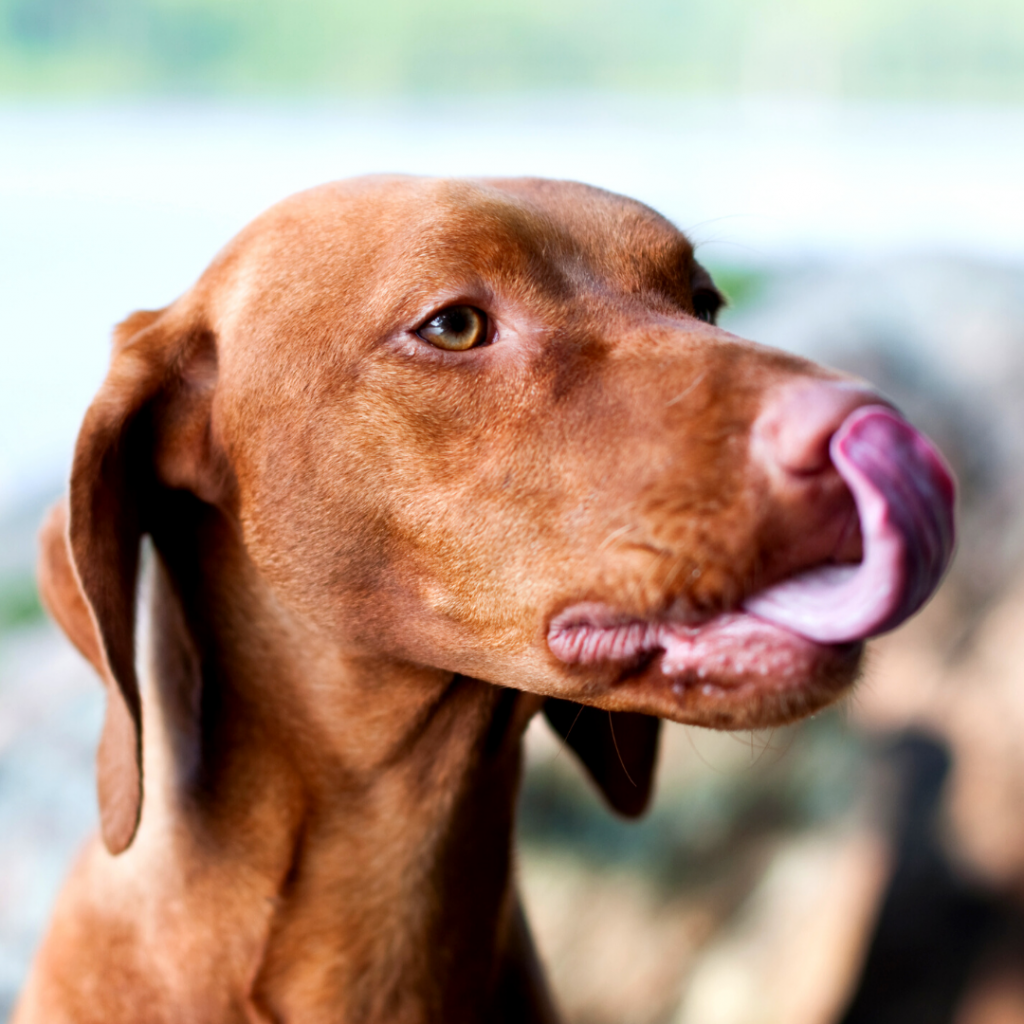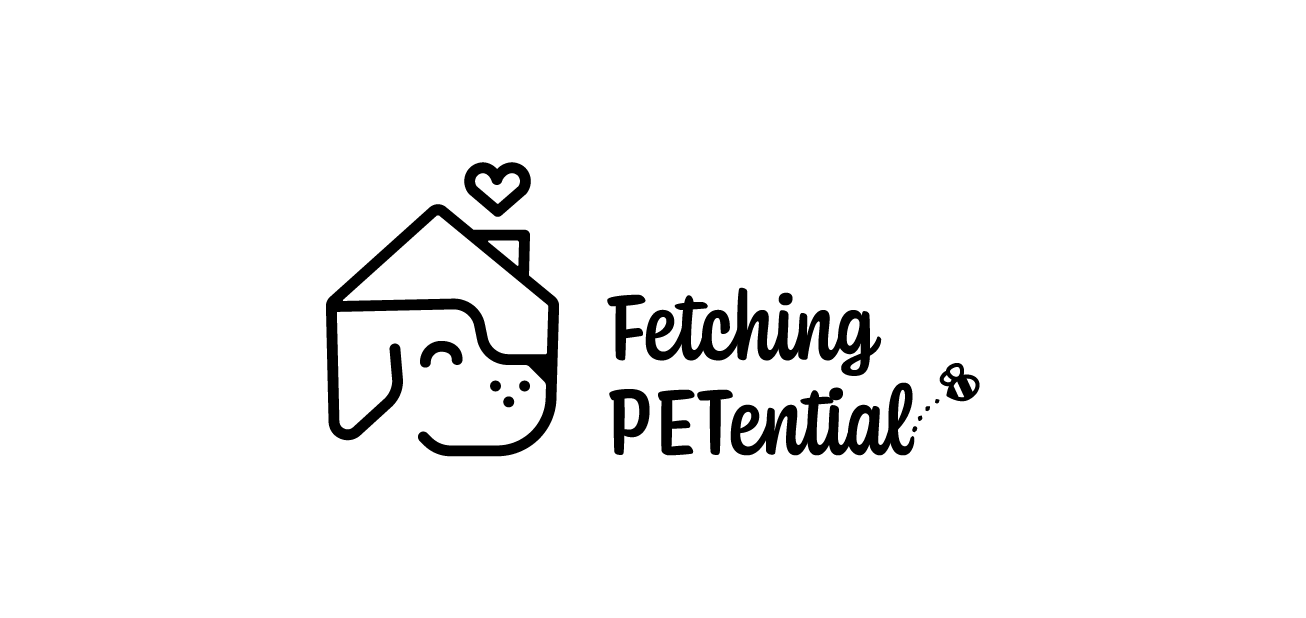You just dropped a tasty morsel of seared steak on the ground and your dog starts licking their lips in anticipation of being told it’s okay to eat it. Their pink tongue swipes from left to right as the drooling begins.
You release them to eat the piece of steak and they gobble it down, licking their lips as soon as it’s gone as well.

That’s all a lip lick means, right? It’s only a way to convey the deliciousness of food and anticipation of eating, yes?
While that is one option, lip licking can also convey a few other internal states of your dog besides hunger.
To start off, lets clarify what a lip lick looks like. There are three different versions of your dog licking their lips.
- You see their whole tongue. Similar to the situation described above, you see their whole tongue stick out and swipe their lips.
- You see just the tip of their tongue. This is sort of like a snake. You see their tongue flick out and maybe it swipes their nose or maybe it is just barely visible.
- You don’t see their tongue, but they are smacking their lips. This one is a bit harder to notice as there isn’t a definitive pink tongue visual, but you can hear your dog smacking their jaw together.

As with all of the body language signals we are talking about, be sure to look at the whole situation before making any interpretations about how your dog is feeling.
In general, though, this behavior is seen when your dog is experiencing a stressor. Let’s pause here and quickly talk about stress.
Stress is usually perceived as something bad. It’s a negative feeling that we experience and therefore whenever someone mentions stress, we equate that with negative emotions. However, your dog may be feeling a form of good stress as well that might elicit this behavior.
In human terms I like to equate it with a rollercoaster versus a looming work deadline. When you get on a rollercoaster, you experience stress. It’s a fun stress, but its stress all the same. Rollercoasters are made for that adrenaline rush that you inevitably feel which also produces the hormone cortisol – aka the stress hormone.
You also experience this hormone release with a fast approaching work deadline. This is less of a fun stress and more likely equates to the emotions we automatically assign the word “stress”.
So, when we say your dog is experiencing stress, it could be a good stress or it could be a bad stress – it all depends on the situation.
My dog, Adam, is a notorious lip licker. He will lip lick as he approaches you for pets. He will lip lick after you ask him if he wants to go for a walk. He will lip lick if he thinks he is in trouble. He is extremely expressive with when he feels any amount of stress. I have learned to look at his other body language signals in addition to his lip licking to understand if he is feeling the rollercoaster type stress or the work deadline type stress.
Lip licking is also seen in dog/dog play. It is seen as a calming signal and an appeasement gesture as if to say, “we are still cool, right?” to the other dog. When two dogs take a break in play (something you should see often in good doggie play), you might see them turn their head and lick their lips toward the other dog. This calming signal deescalates some of the arousal and excitement (or good stress) that happens during play.
If you are seeing your dog lick their lips during a training session, they could be signaling that they are confused or frustrated. With a situation like that, it might be beneficial to take a step back in training and make sure you are being very clear with your requests or break things into smaller pieces so your dog can understand. Using play as a stress reliever is a great option as well!
As you can see, dogs lick their lips to express a lot more than hunger or anticipation of food. Lip licking has a variety of meanings such as stress (good or bad!), discomfort, appeasement or calming, or they might be frustrated or confused. Look at the situation your dog is in to help you decipher what they might be feeling and then take appropriate steps to support your dog.


Recent Comments